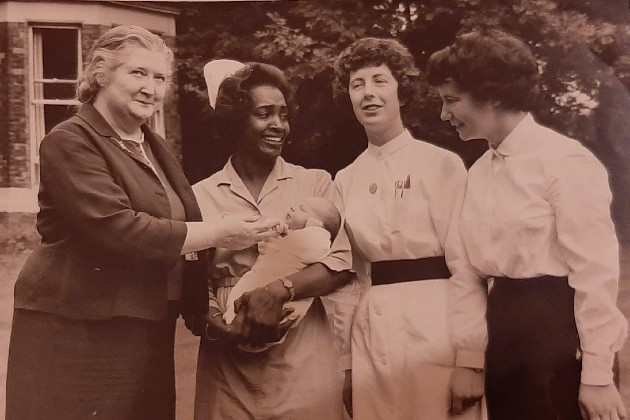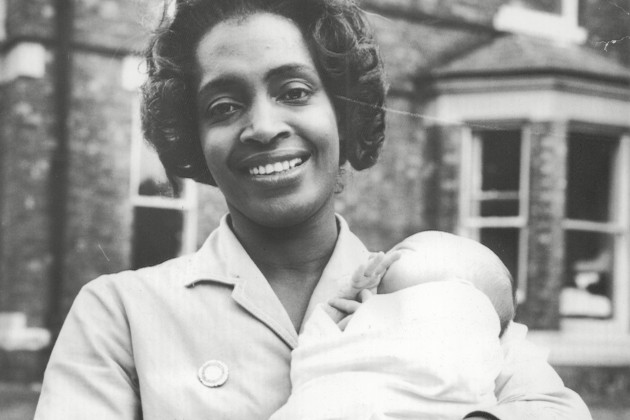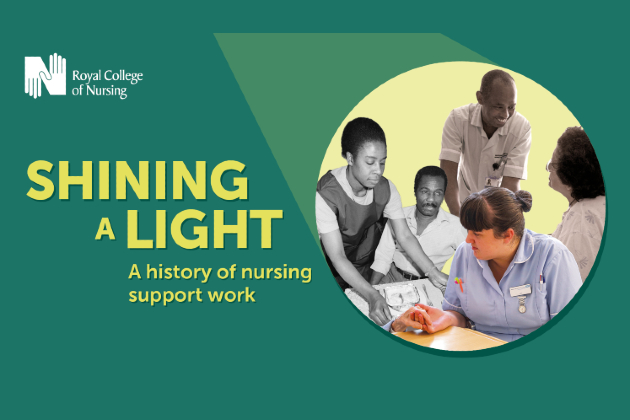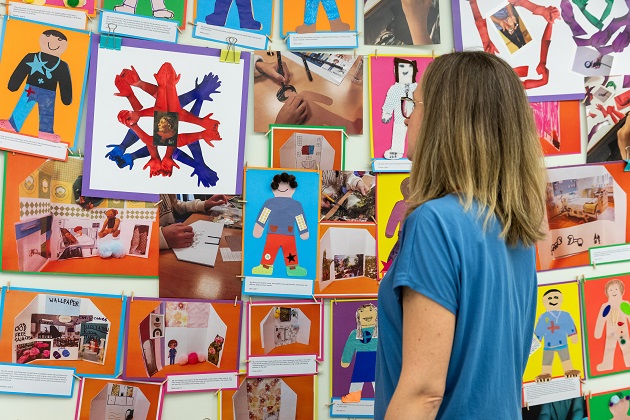The nursing workforce is comprised of staff from all over the world – and this diversity is its real strength. But our hardworking nurses haven’t always achieved equal recognition.
Now, there are small ways this is changing. 73 years after she began nursing, we can see Daphne Steele being fully recognised as a pioneer who pushed boundaries and forced change, in the way that she always deserved.
Daphne is remembered as the first Black matron to join the NHS, having arrived in the UK in 1951 at 24 from her native Guyana. Her early experiences were not without challenges, but these spurred her on to break expectations and barriers, and encourage other young nurses from varied backgrounds to contribute to the health service too.
13 years on from her introduction to the UK and the 3-year-old NHS, Daphne took up her groundbreaking role as matron. At the time, such was the rarity of a Black woman in this position, it was met with a mixture of press coverage, discussion and applaud. But even longer lasting was the way the appointment of the first Black matron doubled as a critical moment for the history of the NHS, which is now proud to be formed of workers from a huge variety of ethnicities and backgrounds.
Worldwide commendation
Daphne’s contributions to the nursing profession were rich, as both nurse and midwife. Since her death at 77 two decades ago, she has continued to be remembered fondly as a ‘quiet revolutionary’.
Daphne’s training took her some distance from home, all the way to the South London neighbourhood of Balham. From there, she had a brief stint in the USA, before returning to contribute extensively to the NHS, which was then still establishing itself as the much-revered public institution so many want to protect today.
Her blue plaque now sits on Hillside Court in the West Yorkshire town Ilkley, at the former site of St Winifred’s Nursing Home, where Daphne began as a qualified nurse.
When a matron post became available there, she was encouraged to apply, despite it sadly being so far from the norms of the time. But she was successful, starting the role in August 1964, aged 36. Before long, her schedule was filling up with nursing duties, while her letterbox filled with deliveries – specifically, over 350 pieces of post from all over, congratulating her on an appointment that broke both local expectations and national boundaries.
Daphne realised the significance and appreciated those who did too, taking care to reply to every letter that had a return address.
It didn’t take long for Daphne to get to work, delivering her first baby on the wards on 8 October that year. She also ran the 14-bed hospital, soon overseeing 250 to 300 births per year and personally delivering 200 during her career.
When St Winifred’s said goodbye to its final patient in October 1971, Daphne decided to stay local, moving to Wharfedale Children’s Hospital just south-east of Ilkley. After that, it was onto the nearest major city, Leeds, but this time as a health visitor greeting local families with her trademark warmth and care.
Towards the final years of Daphne’s incredible life, she saw some of her much-deserved recognition. In 2001, this included an award from the Guyanese High Commission, which she summed up as ‘smashing’.
The following year, Daphne was selected as the local representative to carry Queen Elizabeth II’s Jubilee relay baton in Shipley to mark the Golden Jubilee. “I’m mainly doing it for my community, but the fact that I come from a Commonwealth country is good,” she was quoted as saying in local paper the Ilkley Gazette.
Ongoing recognition
A decade after her death, the Guyanese government formally recognised the plentiful achievements of Daphne, with the Association of Guyanese Nurses and Allied Professionals also enacting an annual memorial lecture.
Recent years have seen other recognitions. In 2018, her training community of Balham honoured her with a plaque at St James’ Hospital’s Nubian Jak Community Trust, and the borough’s St George’s Hospital marks Daphne Steele Day on her birthday on 16 October.
It seems apt that multiple sites across the UK have celebrated Daphne in their unique ways, after she travelled so far to serve various UK populations in need of nursing care.

Back in Yorkshire, Daphne’s is the first blue plaque in a new national scheme, delivered by Historic England on behalf of the Department for Culture, Media and Sport. She had been suggested for the plaque by the Bradford Civic Society and Bradford Metropolitan District Council, as their community identified her as one of several inspirational local women through the ‘Bradford Lasses’ project.
A recent article by Professor Claire Chatterton, previous chair of the RCN’s History of Nursing Society, helped to inform Historic England’s decision to pursue the ‘Bradford Lasses’ project. It was part of an RCN project to diversify the nursing biographies in the Oxford Dictionary of National Biography, and increase the total of them to over 100.
But the plaque isn’t the only way Daphne is being commemorated this year. The University of Huddersfield’s new Health and Wellbeing Academy is also set to be named after her, which her son Robert has shared his pride about – one that is shared by us at the RCN.
Image of Daphne Steele: Copyright of Historic England








